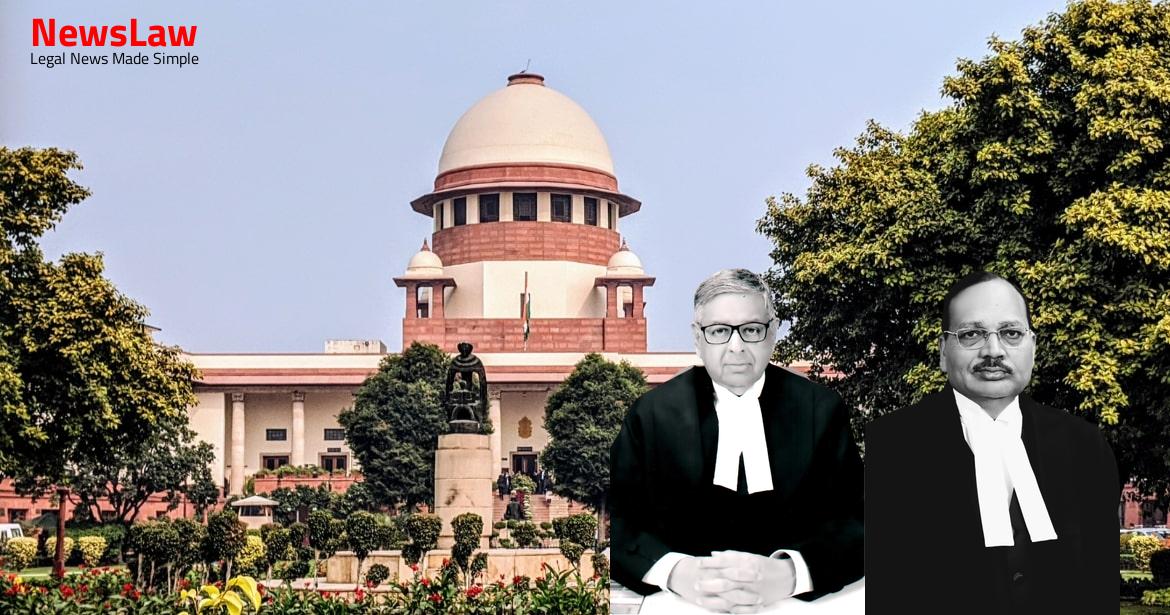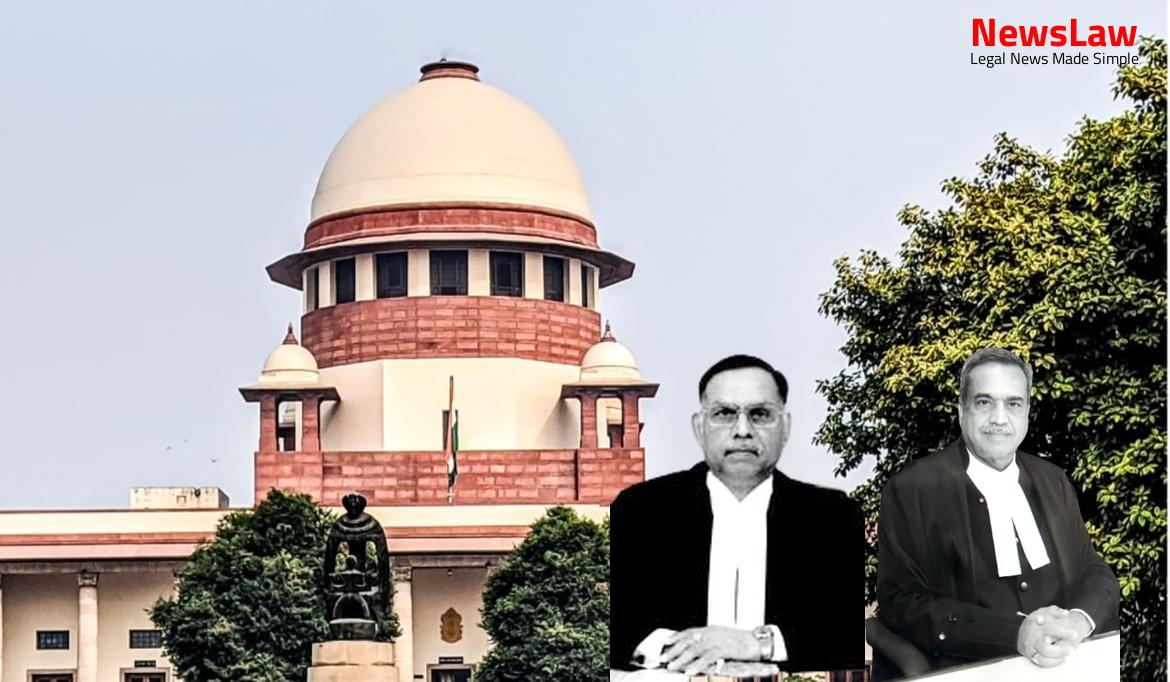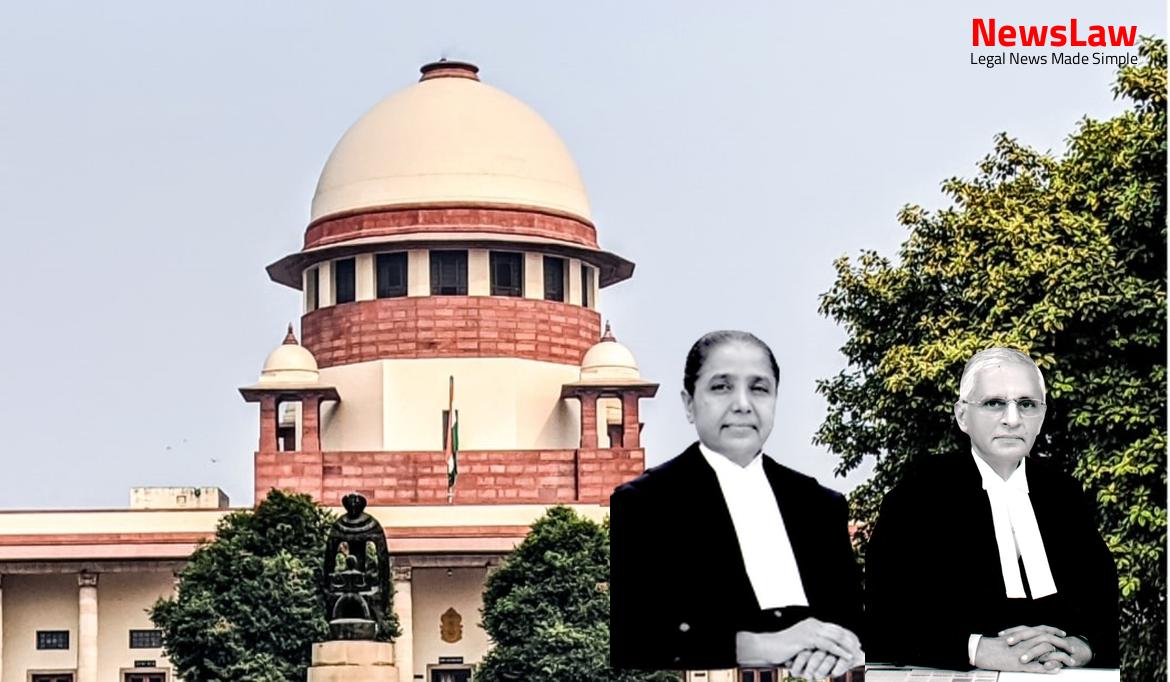Explore the intricate legal analysis undertaken by the court in a recent motor accident compensation case. The case delves into key aspects such as witness credibility, cross-examination, and the standard of proof required in motor accident claims. Stay tuned to discover the nuances of legal proceedings and the significance of judicial reasoning in such matters.
Facts
- Sandeep Sharma, a resident of District Sikar in Rajasthan, was involved in a fatal accident on 25.03.2009 while traveling with Sanjeev Kapoor and two others.
- After the accident, Sandeep was taken to the hospital, where he was later referred to BHU Varanasi for treatment due to the severity of his injuries.
- Despite initial discharge, he faced medical complications and remained hospitalized in various facilities until his eventual passing on 10.12.2009.
- At the time of his death, Sandeep Sharma was 34 years old and employed as a Sales Officer in Mumbai, leaving behind dependents including a widow, two minor children, and a mother.
- The dependents filed a claim petition seeking compensation for Sandeep’s demise, attributing it to the alleged rash and negligent driving of Sanjeev Kapoor, the owner-cum-driver of the car.
- The Tribunal initially awarded compensation, holding the respondents partly liable for the accident, but the High Court later set aside this decision based on procedural shortcomings.
- The New India Assurance Co. Ltd. had filed an appeal against the judgment dated 23.07.2018 passed by the High Court of Judicature for Rajasthan, Bench at Jaipur.
- The appeal was heard through video conferencing due to the circumstances.
- The appeal is directed against the aforementioned judgment of the High Court.
Also Read: Analysis of Suppression of Information in Employment Selection: Legal Perspective
Analysis
- The High Court failed to draw any adverse inference against the witness for not reporting the accident to the police.
- Police themselves reached the hospital upon receiving information about the accident, making it unnecessary for the witness to lodge a report later on.
- There is no indication of any business dealings between the witness and the deceased or their family.
- The witness assisted both the deceased and their family without personal interest, showing responsibility and goodwill.
- In MACT claim cases, the standard of proof required is preponderance of probabilities, not beyond reasonable doubt like in criminal trials.
- The approach of the Courts in accident claim cases should be to analyze evidence to determine if the claimant’s version is likely true, not to find faults with witness examination.
- The High Court overlooked the absence of cross-examination of a crucial witness, which should have been considered.
- The witness Ritesh Pandey acted as a good samaritan and responsible citizen, assisting the injured and providing testimony before the Tribunal.
- The High Court’s dismissal based on disbelieving key witnesses’ testimonies lacks adequate reasoning and sensitivity to the situation.
- The absence of cross-examination of witnesses by the respondents casts doubt on their claims and can lead to tacit admission of the witness statements.
- The failure of the owner-cum-driver to enter the witness box to defend his stance on the accident raises questions about his culpability.
- The High Court’s misconceptions regarding the author of the FIR and drawing adverse inferences against the claimants are noted as incorrect.
- The significance of witness statements, like that of Ritesh Pandey, in establishing crucial details about the accident and the victims’ transportation to the hospital.
- Cross-examination is defined in Section 137 of the Evidence Act.
- The mode of cross-examination with reference to documents and oral evidence is outlined in Sections 139 and 145 of the Evidence Act.
- Cross-examination is crucial to test the truthfulness of a witness’s statement made on oath during examination-in-chief.
- The objectives of cross-examination include weakening the evidentiary value of the adversary’s witness, eliciting facts favorable to the cross-examining lawyer’s client, and impeaching the credibility of the witness.
- In the normal trial of cases, the identity of the witness is necessary to achieve the objectives of cross-examination.
- The right of confrontation is a fundamental guarantee to protect a witness from false and invented evidence by the adversary party.
- The standard in motor accident claims is preponderance of probability rather than proof beyond reasonable doubt.
- It is essential for the opposite party to have a fair opportunity to cross-examine any witness cited in a motor accident claim, even if not named in the criminal case.
- The informant in the FIR had closeness with the owner-cum-driver of the car, raising suspicion of influence in his version.
- The FIR was lodged two days after the accident, appearing to be an afterthought to absolve Sanjeev Kapoor from liabilities.
- Contrary to the suspicious FIR, the statement of AW-3 was deemed reliable by the Tribunal.
- The High Court’s reasoning to disbelieve AW-3 was found unsustainable and overturned.
- No effective argument was presented for the enhancement of compensation, except for a 40% increase in future prospects for the claimants.
Also Read: Analysis of Cheating and Forgery in Passport Case
Decision
- The appellants are entitled to interest at a rate of 8.5% on the entire compensation amount as per the Tribunal’s award.
- The Motor Accident Claims Tribunal in Sikar (Rajasthan) is directed to recalculate the compensation amount within one month.
- The insurance company must deposit the recalculated compensation within one month thereafter.
- The judgment of the High Court is set aside, and the appellants are entitled to the compensation as awarded by the Tribunal.
- An additional 40% is to be added to the annual income of the deceased for ‘future prospects’.
Also Read: Discrepancy in Date of Birth: Court’s Legal Analysis
Case Title: ANITA SHARMA Vs. THE NEW INDIA ASSURANCE CO. LTD. (2020 INSC 685)
Case Number: C.A. No.-004010-004011 / 2020



